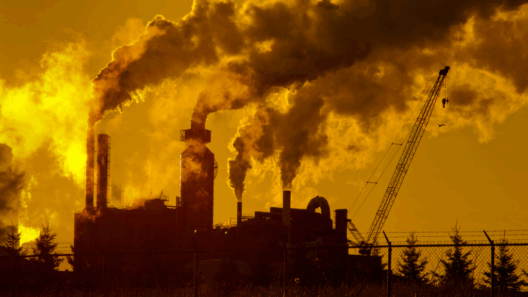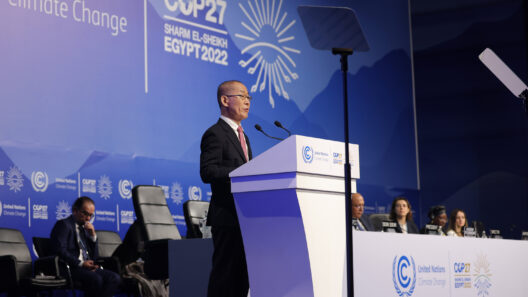Global warming and climate change represent one of the most pressing existential challenges facing humanity today. The specter of an altered environment looms larger than ever, prompting urgent discourse about our future. In the arena of policy, activism, and public awareness, an intriguing question arises: do 10 years really matter in the fight against global warming? On the surface, a decade may seem like a mere blink in the vast timeline of the Earth’s history. However, when scrutinized through the lens of climate science and environmental policy, the implications of the next ten years take on formidable significance.
First, consider the concept of tipping points, those critical thresholds where changes in the environment can lead to irreversible damage. If emissions continue at their current rate, significant ecosystems such as the Arctic ice sheets and the Amazon rainforest may reach points of no return. Once these ecosystems begin to destabilize, the feedback loops they initiate could unleash catastrophic consequences, including accelerated global warming. Consequently, each passing year wherein robust and immediate action is not taken increases the likelihood of crossing these perilous thresholds.
Moreover, the next decade provides an invaluable opportunity for technological evolution. As innovation accelerates, so too does the potential for substantial reductions in greenhouse gas emissions. For instance, advancements in renewable energy technologies, including solar, wind, and battery storage, have rapidly improved in efficiency and affordability. Investing in these technologies over the next ten years can shift the global energy landscape, facilitating a transition away from fossil fuels that may keep the planet within safe temperature limits. Technologies designed to capture carbon and improve energy efficiency are also making strides, signifying that ten years spent nurturing these innovations can yield dividends far beyond their initial development.
In addition to technological transformations, the next decade holds potential for legislative revolutions. Political will, often fickle and unpredictable, is crucial in the battle against climate change. During this pivotal period, nations around the globe have the opportunity to enact transformative policies aimed at reducing emissions significantly. The establishment of stringent regulatory frameworks, fiscal incentives for sustainable practices, and international agreements could establish a collaborative, concerted approach towards mitigating climate change. Ten years of persistent advocacy and policy reform can cement these frameworks, fostering a culture of sustainability that becomes embedded within economic structures.
Furthermore, public awareness and engagement are vital in the fight against global warming. Over the past few years, we have witnessed a burgeoning movement demanding action against climate change. Grassroots activism, influenced by scientific research and climate advocacy, mobilizes communities to take collective action. The next decade can be instrumental in shaping a populace that prioritizes the environment. Educational initiatives and campaigns will be essential for fostering a sense of environmental stewardship among citizens. A generation raised with an acute awareness of climate issues can wield significant power to influence markets, politics, and social norms.
However, it is essential to frame the discussion around responsibility and equity. While we emphasize the urgency of action over the next ten years, we must also consider the disparities that exist among nations. Developing countries, which often contribute disproportionately to climate change relative to their developmental status, face unique challenges. The commitments made by wealthier nations to reduce emissions and provide financial and technological support to developing countries can fundamentally alter the narrative of climate justice. Allocating resources over the next decade to ensure that all nations can participate equitably in climate solutions can dramatically reshape our collective capacity to combat global warming.
It is also crucial to recognize that the next ten years will not only shape the environment but also have profound implications for public health. The statistics are alarming: as the world warms, the prevalence of heat-related illnesses, respiratory diseases due to poor air quality, and vector-borne diseases will rise. Mitigating these public health crises requires proactive measures, including reducing emissions and transitioning to cleaner energy sources. Thus, investing in climate solutions over the next decade serves a dual purpose: it alleviates environmental stresses while concurrently improving human health outcomes.
Moreover, the economic landscape is intricately intertwined with climate action. As global markets increasingly recognize the risks associated with climate change, there is a significant shift towards sustainable investing. Companies that prioritize Sustainable Development Goals (SDGs) are more likely to outperform their competitors. Within the next decade, the financial sector can either exacerbate or ameliorate the climate crisis depending on how it chooses to allocate resources and support green initiatives. The advent of environmentally friendly investment strategies underscores the potential for economic evolution that aligns with climate action.
In conclusion, while a decade may seem fleeting in historical terms, it is a crucial window for action in the fight against global warming. The combination of scientific, technological, political, and social factors converges to create a unique opportunity to redefine our relationship with the environment. Rather than viewing the next ten years as inconsequential, they should be seen as an imperative period for decisive and sustained action. By harnessing this time effectively, humanity can forge a more sustainable future, ensuring the Earth’s resilience against the mounting threats of climate change. The fight against global warming is not merely an environmental issue; it is a multidimensional challenge that requires immediate and comprehensive strategies for the benefit of all life on the planet.








